
'S Werelds beste dividendaandelen zijn nooit uit de mode geraakt, maar ze zien er vooral aantrekkelijk uit in de huidige investeringsomgeving.
De rentetarieven gaan tenslotte door de diepte, het spook van volatiliteit hangt boven een gloeiend hete markt en een hele reeks bedrijven is gedwongen hun uitbetalingen op te schorten of te verlagen.
Dat is waar betrouwbare dividendgroeiaandelen, zoals de Dividend Aristocrats, van pas komen. Bedrijven die hun dividenden decennialang jaarlijks hebben verhoogd, kunnen beleggers enige troost bieden dat hun uitbetalingen tijdens de huidige crisis zullen blijven komen. Door de schamele rendementen op obligaties zijn genereuze dividendbetalers een van de weinige plaatsen waar ze inkomsten kunnen krijgen.
En vergeet niet dat hoogwaardige dividendaandelen ballast kunnen bieden aan een portefeuille in een tumultueuze markt.
"Over het algemeen hebben deze hoogwaardige bedrijven duurzame bedrijfsmodellen, stabiele winsten, solide fundamenten en een sterke geschiedenis van winst en groei laten zien", merkt fondsaanbieder ProShares op. "Als gevolg hiervan hebben strategieën met bedrijven met een consistente dividendgroei sterke prestatiekenmerken vertoond onder een breed scala aan marktomstandigheden."
Dividendaandelen - zowel in binnen- als buitenland - met een lange staat van dienst van ijzersterke stijgende betalingen hebben de neiging om over lange perioden superieure rendementen te genereren en kunnen beleggers helpen om perioden van marktturbulentie te doorstaan.
Dit is een blik op de beste dividendaandelen ter wereld. Ze worden de Dividend Aristocrats genoemd en hebben hun contante uitbetalingen verhoogd voor ten minste vijf opeenvolgende jaren (Canadese bedrijven), 10 jaar (in de EU gevestigde bedrijven) of 25 jaar (Amerikaanse bedrijven). Dergelijke aandelen bieden betrouwbare en stijgende inkomstenstromen ... en een gevoel van veiligheid waardoor u 's nachts beter kunt slapen.

Roper Technologies (ROP, $ 391.93) is een industrieel bedrijf dat onder meer medische en wetenschappelijke beeldvorming, RF-technologie en -software en energiesystemen en -besturingen produceert.
Het is ook een van de jongste dividendaristocraten en voegt zich bij deze lijst van topdividendaandelen in 2018.
Het gediversifieerde industriële bedrijf werd aangeboord voor de Dividend Aristocrats nadat het eind 2017 zijn contante distributie voor het 25e achtereenvolgende jaar had verhoogd. Vervolgens verhoogde het zijn uitbetaling van 12% in november 2018 tot 46,25 cent per kwartaal per kwartaal. In november vorig jaar steeg het kwartaaldividend met nog eens 10,8% tot 51,25 cent.
Een combinatie van acquisities, organische groei en sterkere marges hebben Roper geholpen om zijn dividend te verhogen zonder zijn winst op te rekken. Sterker nog, het bedrijf heeft een magere uitbetalingsratio van iets minder dan 13%, tegenover ongeveer 55% voor de S&P 500. Dat betekent dat het ROP-dividend niet alleen veilig is, maar ook voorbereid om nog vele jaren te blijven stijgen.

Halma . uit het VK (HLMAF, $ 29,14) investeert in technologiebedrijven die zich bezighouden met gezondheid, veiligheid en milieu. De Infrastructure Safety van het bedrijf heeft producten voor branddetectie en -bestrijding en voor beveiligingsmonitoring. Het segment Process Safety heeft tools voor het detecteren van gevaarlijke gaslekken en het bewaken van de luchtkwaliteit. Milieuanalyse richt zich op de beoordeling en sanering van de waterkwaliteit. En de medische sector heeft apparaten die de ooggezondheid en bloeddruk analyseren. Het grootste deel van de omzet komt uit de VS en Europa.
Halma heeft 16 opeenvolgende jaren van stijgende omzet en winst gerealiseerd door organische groei, gedreven door nieuwe producten en diensten, te combineren met niche-acquisities. De inkomsten stegen met 13% voor boekjaar 2019; ongeveer 10 procentpunten daarvan was organisch, maar Halma profiteerde ook van niche-acquisities in de markten voor infrastructuurveiligheid en gezondheidszorg.
Deze stabiele Eddie heeft vier decennia ononderbroken uitbetalingsgroei voortgebracht, waardoor het een van de topdividendaandelen is binnen de Europese dividendaristocraten. Halma pochte ook in zijn fiscale 2019-rapport dat, vanaf maart 2019, een investering in zijn aandelen het afgelopen decennium 1.141% zou hebben opgeleverd, wat meer dan het dubbele is van het rendement van de Nasdaq Composite.
HLMAF verhoogde zijn interim-dividend, uitgekeerd op 2 mei, met 7%, waarmee het voor het 41e opeenvolgende jaar van uitbetalingsgroei is.

Franco-Nevada (FNV, $ 143,00) verschilt van de meeste mijnbouwbedrijven doordat het geen mijnen bezit. In plaats daarvan financiert het mijnontwikkelingen voor andere bedrijven in ruil voor een deel van de toekomstige inkomsten. Met andere woorden, het is een royaltyspel. Hoe moeilijker het is voor mijnbouwbedrijven om traditionele financiering voor een project te krijgen, hoe groter de kans voor Franco-Nevada.
FNV heeft de afgelopen jaren gediversifieerd in de inkomstenstromen van olie en gas; olie en gas zijn nu goed voor 16% van de omzet. In totaal genereert Franco-Nevada 80% van zijn inkomsten uit Amerika, met slechts 20% uit de rest van de wereld. Er zijn dus geografische uitbreidingsmogelijkheden buiten Noord- en Zuid-Amerika.
Franco-Nevada verstrekt momenteel financiering voor 56 goud- en 56 energiebedrijven die in productie zijn, nog eens 35 goudprojecten die dicht bij productie zijn, en 229 goud- en energiebedrijven die zich in de exploratiefase van ontwikkeling bevinden.
Het bedrijf verhoogde voor het laatst het kwartaaldividend in mei, met een cent tot 26 cent per aandeel.

S&P Wereldwijd (SPGI, $ 351.81), voorheen bekend als McGraw Hill Financial, is het bedrijf achter S&P Global Ratings, S&P Global Market Intelligence en S&P Global Platts. Hoewel de meeste beleggers het waarschijnlijk kennen vanwege zijn meerderheidsbelang in S&P Dow Jones Indices – dat de benchmark S&P 500-index handhaaft – is het ook een centrale speler op het gebied van bedrijfs- en financiële analyse, informatie en onderzoek.
S&P Global heeft sinds 1937 elk jaar een dividend uitgekeerd en is een van de minder dan 25 bedrijven in de S&P 500 die het dividend gedurende ten minste 47 jaar jaarlijks heeft verhoogd, merkt het bedrijf op. Meest recentelijk, in januari, verhoogde SPGI zijn driemaandelijkse uitbetaling met een gezonde 17,5% tot 67 cent per aandeel.

Afvalverbindingen (WCN, $98,40) is een afvalservicebedrijf dat afval- en recyclinginzameling voor secundaire markten levert aan meer dan 7 miljoen klanten in 42 Amerikaanse staten en zes Canadese provincies. Het biedt ook intermodale diensten voor het vervoer per spoor van vracht en containers voor vast afval in de Pacific Northwest.
In 2019 genereerde WCN een vrije kasstroom van $ 681,2 miljoen, terwijl het $ 181 miljoen uitgaf aan dividenden en $ 129,4 miljoen aan het terugkopen van aandelen. Het bedrijf heeft de kapitaaluitgaven verminderd en de kosten onder controle gehouden in het licht van de uitbraak van het coronavirus.
Waste Connections verhoogde zijn dividend voor het laatst in oktober, toen het een verhoging van 16% aankondigde tot 18,5 cent per aandeel.

Denemarken Coloplast (CLPBY, $ 16,09) is de wereldleider op het gebied van stoma- en incontinentieproducten. Het zijn geen mooie markten, maar ze groeien sneller dan de algemene medische markt. Het bedrijf heeft ook top-vijf posities in wondzorg en interventionele urologie.
Coloplast genereert 60% van de omzet uit Europa, 23% uit andere ontwikkelde landen en 17% uit opkomende markten.
De activiteiten op het gebied van interventionele urologie hebben een sterke groei doorgemaakt dankzij de verkoop van penisimplantaten van het merk Titan. Coloplast overwoog onlangs om dit bedrijf te verkopen nadat de FDA het en de belangrijkste rivaal Boston Scientific (BSX) had bevolen te stoppen met de verkoop van chirurgisch gaas voor transvaginale reparatie, die het onderwerp was van toenemende rechtszaken. Uiteindelijk besloot het bedrijf echter zijn activiteiten op het gebied van interventionele urologie te behouden.
CLPBY kondigde een halfjaarlijks interim-dividend aan in lijn met de afgelopen paar interim-dividenden. We zullen moeten wachten tot eind 2020 om erachter te komen of Coloplast de uitbetaling voor het 24e achtereenvolgende jaar zal verhogen, aangezien het doorgaans de ante op zijn eindejaarsbetaling verhoogt.

Ecolab (ECL, $ 200,66) biedt waterbehandeling en andere onderhoudsdiensten op industriële schaal voor verschillende industrieën, waaronder voedsel, gezondheidszorg en olie en gas. Praktisch gesproken helpen haar producten bij het optimaliseren van alles, van offshore olieproductie tot het polijsten van elektronica tot commerciële wasserijen.
Het fortuin van Ecolab kan echter afnemen als de industriële behoeften fluctueren. Als energiebedrijven bijvoorbeeld bezuinigen, zal ECL de brand voelen.
Maar op de lange termijn zijn de aandelen van deze Dividend Aristocrat een bewezen winnaar. Het aandeel heeft het afgelopen decennium een jaarlijks rendement, inclusief dividenden, van 16,5% opgeleverd, tegenover 13,8% voor de S&P 500. Dat is niet in de laatste plaats te danken aan 28 opeenvolgende jaren van dividendverhogingen. De meest recente verhoging van het bedrijf was in december, toen ECL de driemaandelijkse uitbetaling met 2% verhoogde tot 47 cent per aandeel.

Zwitserse chocolatier Lindt &Sprungli (LDSVF, $7.923,00) is een wereldleider in chocolade van topkwaliteit.
Het bedrijf produceert chocolade vanuit 12 locaties in de VS en Europa, exploiteert 410 winkels en registreert verkopen in 120 landen. Amerikaanse consumenten kopen de merken Lindt, Ghirardelli en Russell Stover van het bedrijf en hebben van Lindt de nummer 1 speler in premium chocolaatjes en nummer 3 op de Amerikaanse chocolademarkt gemaakt.
Lindt zei dat het een klap krijgt van de pandemie, die de verkoop bij reisretailers, zijn eigen winkelnetwerk, foodserviceproviders en zelfs sommige supermarkten heeft geschaad. Ondanks de onzekerheid handhaafde het bedrijf niet alleen zijn groeidoelstellingen op middellange tot lange termijn, maar verhoogde het zijn dividend in maart met 75%, toen het de 175e verjaardag van het bedrijf vierde.

Sherwin-Williams (SHW, $ 583,80) is een van de grootste verf-, coatings- en woningverbeteringsbedrijven ter wereld, grotendeels dankzij de acquisitie van Valspar ter waarde van $ 11 miljard in 2017.
Het bedrijf heeft zich snel aangepast aan de coronaviruscrisis, door het ophalen aan de stoeprand te implementeren en zwaarder te vertrouwen op zijn e-commerceplatform. Hoewel de verkoop onder druk blijft staan, helpt een betere vraag in de architectuuractiviteiten in Noord-Amerika de klap te verzachten.
Op langere termijn verwachten analisten een solide winstgroei. Analisten gepolst door S&P Capital IQ verwachten dat de winst de komende drie tot vijf jaar met gemiddeld bijna 10% per jaar zal groeien.
SHW is een van de beste dividendaandelen als het gaat om veiligheid. Sherwin-Williams heeft de distributie sinds 1979 elk jaar verbeterd, inclusief een sprong van 18,6% medio februari. Ondertussen keert het slechts 27% van zijn winst uit als dividend.

Cintas (CTAS, $ 266.88) is misschien het best bekend voor het leveren van bedrijfsuniformen, maar het bedrijf biedt ook onderhoudsbenodigdheden, tegel- en tapijtreinigingsdiensten en zelfs nalevingstrainingen. Als zodanig wordt het door sommige investeerders gezien als een gok op banengroei.
Daar zit vast iets in. Per slot van rekening hebben aandelen de afgelopen vijf jaar een totaalrendement van 236% behaald, tegenover slechts 68% voor de S&P 500.
De door COVID veroorzaakte economische neergang heeft natuurlijk geleid tot CTAS-aandelen, aangezien tientallen miljoenen Amerikanen werkloos zijn geworden. Het aandeel verloor bijna de helft van zijn waarde door de dieptepunten op de aandelenmarkt, en het is nog steeds ongeveer 12% verwijderd van zijn pieken op de bullmarkt.
Ongeacht hoe de arbeidsmarkt het doet, Cintas is een fervent dividendbetaler. Het bedrijf heeft zijn uitbetaling elk jaar verhoogd sinds de beursgang in 1983. Meest recentelijk, in oktober, verhoogde CTAS zijn jaarlijkse dividend met 24% tot $2,55 per aandeel.

Bruin-Forman (BF.B, $64,80) is een van de grootste producenten en distributeurs van alcohol ter wereld. Jack Daniel's Tennessee-whisky en Finlandia-wodka zijn slechts twee van de bekendste merken, waarbij de eerste de groei op lange termijn stimuleren. Whisky wordt steeds populairder bij Amerikaanse drinkers, blijkt uit enquêtes, en Jack Daniel's leidt het peloton. De verkoop van tequila - Brown-Forman met onder andere de merken Herradura en El Jimador - neemt ook toe.
In tegenstelling tot veel van 's werelds beste dividendaandelen, heeft u met de beursgenoteerde BF.B-aandelen geen inspraak in zakelijke aangelegenheden. Ze hebben geen stemrecht. Geen. Die macht berust bij de familie Brown, die de meeste stemgerechtigde A-aandelen bezit.
Gelukkig profiteert u nog steeds van de winstgroei en dividenden van het bedrijf. Die uitbetaling is al 36 opeenvolgende jaren aan het stijgen en is al 74 jaar ononderbroken uitgekeerd. Meest recentelijk verhoogde Brown-Forman zijn dividend met 5% tot 17,43 cent per aandeel, in november 2019.

Fabrikant van medische hulpmiddelen Becton Dickinson (BDX, $ 257.37) groeide in 2015 met de overname van CareFusion, een complementaire speler in dezelfde branche. In 2017 sloot het een deal van $ 24 miljard voor collega Dividend Aristocrat C.R. Bard, een ander bedrijf in medische producten met een sterke positie in behandelingen voor infectieziekten.
Het bedrijf, dat alles maakt, van insulinespuiten tot celanalysesystemen, zoekt steeds meer naar groei die wordt aangedreven door markten buiten de VS, waaronder China. Analisten verwachten dat BDX de komende vijf jaar een gemiddelde jaarlijkse winstgroei van 6,5% zal genereren, volgens S&P Capital IQ.
De laatste stijging van BDX was een stijging van 2,6% die in november 2019 werd aangekondigd, waardoor de jaarlijkse groei van het dividend nog dichter bij de vijf decennia kwam. Dat trackrecord zou gemoedsrust moeten bieden aan angstige inkomensbeleggers.

Vervoerder wereldwijd (CARR, $ 24,89) is een van de weinige nieuwe toevoegingen aan deze lijst van topdividendaandelen.
Carrier is een gigantische speler op het gebied van klimaatbeheersingssystemen met drie verschillende bedrijfssegmenten:verwarming, ventilatie en airconditioning (HVAC), koeling en brand &veiligheid. Het bedrijf heeft 53.000 mensen in dienst in 160 landen.
Carrier Global maakt de lijst van Dividend Aristocrats op basis van zijn voormalige moedermaatschappij United Technologies. United Tech was een Dividend Aristocrat tot de fusie in april 2020 met Raytheon. Carrier Global is een spin-off van United Technologies – nu Raytheon Technologies – als onderdeel van de fusie.
Het nu onafhankelijke bedrijf maakte begin juni zijn eerste dividend bekend, toen het een uitbetaling van 8 cent per aandeel toezegde. Met inbegrip van zijn tijd als onderdeel van United Technologies, heeft CARR zijn dividend gedurende meer dan een kwart eeuw jaarlijks verhoogd.

Expeditors International van Washington (EXPD, $ 77,58) trad in januari 2020 toe tot de Aristocrats, omdat het een kwarteeuw van dividendgroei had overschaduwd. Het logistieke bedrijf verhoogde zijn halfjaarlijkse dividend voor het laatst in mei, van 50 cent per aandeel van 52 cent per aandeel.
EXPD-aandelen hebben dit jaar ondanks de pandemie relatief goed standgehouden en overtroffen de S&P 500. "De impact van COVID-19 blijft een enorme impact hebben op de wereldwijde economische omgeving, zowel voor vraag als aanbod, evenals voor kopen/verkopen tarieven", zei CEO Jeffrey Musser in een persbericht van mei.
Als het verleden echter een proloog is, blijft EXPD zich inzetten voor zijn dividend. Een uitbetalingsratio van minder dan 30% geeft aan dat het voldoende middelen heeft om de streak levend te houden.

McCormick (MKC, $ 185,91) – verantwoordelijk voor het gelijknamige merk van kruiden, specerijen en andere smaakstoffen, evenals Old Bay, Frank's RedHot, French's en meer - is de afgelopen drie jaar gegroeid om de omzetgroei te stimuleren.
Die deals hebben ook hun vruchten afgeworpen. Hoewel MKC eerder dit jaar zijn prognose voor het hele jaar moest intrekken vanwege de onzekerheid rond COVID-19, heeft het in 2020 nog steeds sterke operationele resultaten behaald, waaronder 8% verkoopwinsten en een winst van bijna 27% voor het tweede kwartaal.
Analysts expect average annual earnings growth of more than 5% for the next five years. That should provide support for McCormick's dividend, which has been paid for 95 consecutive years and raised annually for 34. Most recently, in November, the company hiked the dividend by nearly 9% to 62 cents per share – nearly double the amount it paid in 2012.
"We remain committed to our long history of returning cash to shareholders and I am incredibly proud to announce another dividend increase," CEO Lawrence Kurzius said in a press release.
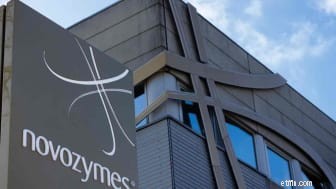
Denmark's Novozymes (NVZMY, $58.48) develops industrial enzymes and microorganisms used in a variety of ways. They increase crop yields, improve animal health, extend the freshness of bakery products, reduce chemical use in textile production, remove clothing stains and treat wastewater.
The company has an enormous reach, estimating that 5.6 billion people worldwide use products containing Novozymes enzymes on a weekly basis.
Novozymes is expanding its operations in emerging markets, particularly in the household-care and food and beverage segments. The firm installed offices in Thailand, Indonesia, the Philippines and Kenya in 2018, as well as opened an Innovation &Technology Center in Turkey that will develop products for customers in Africa and the Middle East.
Novozymes delivers dividends annually, and its 2019 payout was 5% higher than the previous year. That's good for 19 consecutive years of increases, making it one of Europe's top dividend stocks.

Anyone who has spent time staring at the buttons in an elevator is familiar with Otis Worldwide (OTIS, $56.98). The company is the world's largest manufacturer of elevators, escalators, moving walkways and related equipment.
Like Carrier Global, Otis was spun off of United Technologies as part of the Raytheon merger in spring 2020. Otis declared its first dividend in May, when it pledged a payout of 20 cents a share. Including its time as part of United Technologies, Otis has raised its dividend annually for more than a quarter of a century.
Analysts expect the company to generate average annual earnings growth of 8% over the next three to five years.

Following its 2013 spinoff of AbbVie – another Dividend Aristocrat on this list that we'll discuss in a moment – Abbott Laboratories (ABT, $93.04) focused on branded generic drugs, medical devices, nutrition and diagnostic products. Its product list includes the likes of Similac infant formulas, Glucerna diabetes management products and i-Stat diagnostics devices.
Additionally, ABT is "at the front-line of COVID diagnostic technology and information gathering," says Janney Montgomery Scott, which has no rating on the stock.
The company has been expanding by acquisition as of late, including medical-device firm St. Jude Medical and rapid-testing technology business Alere, both snapped up in 2017.
Abbott Labs, which dates back to 1888, first paid a dividend in 1924. Meanwhile, its dividend growth streak is nearing half a century. Its most recent improvement to the payout came in December – a 12.5% upgrade to 36 cents per share.

Linde (LIN, $225.95) became a Dividend Aristocrat in late 2018 after it completed its merger with Praxair, which itself was added to the illustrious list of the S&P 500's best dividend stocks for income growth in January 2018. The $90 billion tie-up of Linde and Praxair created the world's largest industrial gasses company.
Prior to the merger, Praxair had raised its dividend for 25 consecutive years. Linde, now headquartered in Dublin, had raised its dividend every year since 2014. The combined company is expected to continue to be a steady dividend payer, too. Its most recent hike was in late February – a 10% bump to 96.3 cents per share.
Analysts project the multinational industrial firm's profits to increase at an average annual rate of almost 9.7% over the next three to five years, according to a survey by S&P Capital IQ. A payout ratio of slightly more than 40% also gives Linde plenty of breathing room for future dividend growth.

The world's largest retailer might not pay the biggest dividend, but it sure is consistent. Walmart (WMT, $130.68) has been delivering meager penny increases to its dividend since 2014, including 2020's bump to 54 cents per share. But that's been enough to maintain its 46-year streak of consecutive annual payout hikes.
Walmart boasts nearly 5,400 stores across different formats in the U.S., not to mention another 5,800 stores across dozens more banners in 26 other countries.
But while Walmart is a brick-and-mortar business, it's not conceding the e-commerce race to Amazon.com (AMZN). The company's U.S. e-commerce sales grew 41% year-over-year in its most recent quarter, boosted by demand for groceries amid the coronavirus crisis. And it recently announced a "Walmart+" service in July to battle Amazon Prime.

Sage Group (SGPYY, $33.24) is a U.K.-based technology company that's among the leaders in enterprise software. The company provides specialized software used for accounting, financial management, enterprise planning, HR, payroll and payment processing. Approximately half of U.K. businesses use Sage software to pay their workers.
The company has faced challenges recently as it tries to shift its customers to the cloud. It has warned of short-term software and software-related services (SSRS) declines as it transitions toward subscription and cloud-based alternatives.
Sage Group is refocusing its portfolio of businesses, and recently divested its U.S. payroll processing business and Sage Pay business unit. The company said it would issue a capital return of roughly $300 million in sale proceeds to investors.
Like most European Dividend Aristocrats, Sage Group pays dividends semiannually. Its 2020 interim payout was 2.4% higher than the year-ago period, setting it up for another year of uninterrupted dividend growth.

Canadian National Railway (CNI, $89.61) is the second-largest publicly traded North American railway. It boasts a network of roughly 20,000 route miles serving more than $250 billion worth of goods annually across Canada, the American Midwest and down to the Gulf of Mexico.
The railroad operator is one of Canada's top dividend stocks, as it has improved its payout every single year since going public in 1995. The dividend has grown by 16% annually on average during that time – one of the most robust rates among the nation's income plays.
The June payout of 57.5 Canadian cents per share represented year-over-year growth of 7.2%.

Clorox (CLX, $229.76), whose brands include its namesake bleaches, Glad trash bags and Hidden Valley salad dressing, received a tremendous tailwind from COVID-19. While many companies hemorrhaged sales during the outbreak, Clorox's biggest challenge was keeping up with demand for germ-killing products such as its disinfecting wipes.
The bottom line is that after years of disappointing share-price performance, Clorox stock is killing it in 2020. The stock is up nearly 50% for the year-to-date.
Clorox has increased its payout every year since 1977, most recently in May 2020 when it climbed 47% to $1.16 per share. A payout ratio of roughly 60% of Clorox's earnings signals that future payout increases might be modest, but the dividend appears plenty safe.

U.K. firm Diageo (DEO, $141.63) is a global alcoholic beverage company with sales in more than 180 countries. The company owns many top-selling liquors, including Johnnie Walker whisky, Crown Royal, Captain Morgan rum, Smirnoff vodka, Tanqueray and Gordons gin, Bailey's liqueur and Guinness beer.
Last August, Diageo ventured into the non-alcoholic beverage segment by acquiring a stake in Seedlip, the world's first distilled non-alcoholic spirits brand. Seedlip beverages are found in more than 7,500 bars, restaurants and hotels in 25 countries.
Diageo aims to accelerate the growth of its higher-margin premium brands in its portfolio, and it's doing so by trimming non-core brands. It recently shed 19 such brands, including Seagram's VO Canadian whisky and Goldschlager schnapps.
Dividends, paid semiannually, have been issued consistently since 1998, and it's among the European Dividend Aristocrats that have grown payouts for more than two decades. Diageo set itself up for a 22nd consecutive year of dividend growth with a 5% hike in its interim dividend to 27.41 pence per share.

Hormel Foods (HRL, $48.20) is about as reliable as they come when it comes to income investing. The packaged food company best known for Spam – but also responsible for its namesake-branded meats and chili, Skippy peanut butter, Dinty Moore stews and House of Tsang sauces – has raised its annual payout every year for more than five decades.
Indeed, in November, Hormel announced its 54th consecutive annual dividend increase – a nearly 11% raise to 23.25 cents a share.
Hormel is rightly proud to note that it has paid a regular quarterly dividend without interruption since becoming a public company in 1928. Meeting analyst expectations – which currently are for a modest 3% average annual profit growth for the next five years – would go a long way toward keeping that streak alive.

PPG Industries (PPG, $107.04) makes coatings and paints for numerous industries, including aerospace, architecture, automotive and packaging. It's a business that always has some level of need, but 2020 has been tough so far given the global slowdown and uncertainty surrounding Boeing (BA), a major customer.
Longer-term, however, analysts remain optimistic that the company can generate steady growth.
PPG's profits are forecast to grow at an average annual rate of 5.8% for the next three to five years, according to S&P Capital IQ. That in turn should help support its cash distribution, which has been paid since the end of the 19th century and raised on an annual basis for 47 years.
PPG last maintained its membership among America's top dividend stocks in July 2019, when it announced a 6.3% increase to 51 cents per share.

Air Products &Chemicals (APD, $273.19) spent much of the past few years restructuring. Under pressure from investors, it started to shed some weight, including spinning off its Electronic Materials division and selling its Performance Materials business.
Air Products, which dates back to 1940, now is a slimmer company that has returned to focusing on its legacy industrial gases business. But it hasn't taken its eye off the dividend, which it has improved on an annual basis for 38 years in a row. In fact, APD's May payout was 15.5% better than the year-ago dividend, marking the largest increase in company history.
"The board's decision to increase the dividend by over 15% reflects continued confidence in Air Products' strong financial position and cash flows," the company said in a news release. "In fiscal 2019, we paid nearly $1 billion dollars of dividends to our shareholders."

Albemarle (ALB, $78.89) which manufactures specialty chemicals such as lithium, was tapped to join the Dividend Aristocrats in January, having secured a streak of 25 years of dividend increases in 2019.
Albemarle's products work entirely behind the scenes, but its chemicals go to work in a number of industries, from clean-fuel technologies to pharmaceuticals to fire safety.
The chemicals giant last hiked its dividend in February, by 5% to 38.5 cents a share. Meanwhile, its sub-30% payout ratio means ALB has the financial resources to keep hiking the payout.
"Consistently increasing our annualized dividend from 10 cents in 1994 to $1.47 in 2019, a 22% annual growth rate, reflects our steadfast commitment to returning cash to shareholders," CEO Luke Kissam said in early 2020. "We are confident in Albemarle's future, will remain disciplined in our capital allocation, and will continue to prioritize dividend growth."

A.O. Smit (AOS, $48.27), a manufacturer of commercial and residential water heaters, is a relatively recent addition to the Dividend Aristocrats, entering the club in 2018. In October 2019, it announced a 9% raise in its quarterly payout to 24 cents a share. AOS noted at the time that its five-year compound annual dividend growth rate was 24%.
Analysts expect the company's earnings to rise at a rate of 8% a year for the next five years, helped by the rollout of A.O. Smith water heaters at home-improvement chain Lowe's (LOW), as well as strength across the North American market.
A.O. Smith has upped the ante on its dividend annually for 27 consecutive years.

U.K.-based diversified industrial company Pentair (PNR, $38.45) completed the tax-free spinoff of nVent Electric (NVT) in 2017, allowing the company to focus on its water assets, operating in businesses such as Flow Technologies, Filtration &Process and Aquatic &Environmental Systems. It bulked up those operations with its January 2019 acquisition of Aquion for $160 million in cash.
Pentair has raised its dividend annually for 44 straight years, most recently by 5.6% to 19 cents a quarter, keeping its place among the world's top dividend stocks.
Analysts on average project long-term earnings growth of 3% a year, according to S&P Global Market Intelligence; that's a considerable slowdown from previous estimates, which you can chalk up to the COVID-inspired economic slowdown.
Still, a conservative payout ratio of 32% bodes well for future dividend growth.

Power- and hand-toolmaker Stanley Black &Decker (SWK, $139.92) has paid a dividend for 143 years on an uninterrupted basis, and it has improved that cash distribution annually for more than half a century, including a 4.5% increase to 69 cents per share in July 2019.
Analysts expect SWK to generate average annual earnings growth of 5.7% a year over the next half-decade, thanks to a strategy of growth through acquisitions and cost cuts.
Stanley Black &Decker bought Newell Tools – which includes the Lenox and Irwin brands – from Newell Brands (NWL) for $2 billion in 2016. In January 2017, it negotiated the purchase of the Craftsman tool brand from Sears Holdings (SHLDQ) for a total of $775 million over three years and a percentage of annual sales. Then in 2018, SWK announced the acquisition of IES Attachments for $690 million cash, and the $440 million purchase of Nelson Fastener Systems.
Stanley still is wheeling and dealing in 2020, announcing in January that it would buy Boeing-supplier Consolidated Aerospace Manufacturing for up to $1.5 billion.

Dover (DOV, $95.15) is arguably one of the very top dividend stocks in the world, given that its dividend-growth streak of 64 consecutive years is the longest on this list. Dover last raised its payout in August 2019, when it upped the quarterly dividend by 2% to 49 cents a share.
The industrial conglomerate has its hands in all sorts of businesses, from Dover-branded pumps, lifts and even productivity tools for the energy business, to Anthony-branded commercial refrigerator and freezer doors.
It's not an exciting business, but it can be a remunerative one. And that's what counts.
"Dover has been displaying an impressive performance, aided by solid backlog across its segments, cost-reduction initiatives, acquisitions as well as new product development," Zacks Equity Research says. "Investors might want to hold on to the stock, at present, as it has ample prospects for outperforming peers in the near future."

Atmos Energy (ATO, $99.09), which distributes and stores natural gas, was added to the Dividend Aristocrats in January 2020. The Dallas-headquartered firm serves more than 3 million customers across eight states, with a large presence in Texas and Louisiana.
Atmos clinched its 25th year of dividend growth in November 2019, when it announced a 9.5% increase to 57.5 cents per quarter.
"The company has a sturdy capital expenditure policy in place, helping it enhance the safety and reliability profile of its natural gas pipeline," Zacks Equity Research notes.
Analysts surveyed by S&P Capital IQ forecast average annual earnings growth of 6.5% over the next three to five years. That doesn't sound exciting, but it's A-OK for dividend stocks in the utility sector.
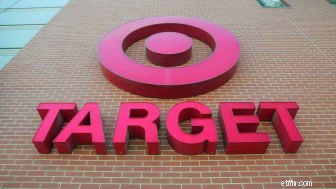
Target (TGT, $118.86) might be the No. 2 discount retail chain after Walmart in terms of revenue, but it doesn't take a back seat to the behemoth from Bentonville when it comes to dividends.
Target paid its first dividend in 1967, seven years ahead of Walmart, and has raised its payout annually since 1972. The last hike came in June, when the retailer raised its quarterly disbursement by 3% to 68 cents a share.
Income investors can count on Target to keep hitting the mark for dividend growth thanks to a payout ratio of less than 48%. As for earnings growth? Analysts are looking for an average annual improvement of about 7% through the end of 2024 – not bad at all for a brick-and-mortar retailer.

Canadian media conglomerate Thomson Reuters (TRI, $67.59) is best known for its ownership of Reuters, the international news service but it holds a large portfolio of other businesses providing news and data for government, as well as the legal, tax compliance industries.
In February, Thomson Reuters increased its annual payout by about 5.6% to 38 cents per share, extending a dividend-growth streak that's more than a quarter-century old. Better still:TRI has a payout ratio of less than 43%, which means it has plenty of ceiling to keep the dividend hikes coming.

Chubb (CB, $128.43) was added to the Dividend Aristocrats in January 2019. The insurance company last raised its payout in May, by 5% to 78 cents a share. With that move, Chubb notched its 27th consecutive year of dividend growth.
As the world's largest publicly traded property and casualty insurance company, Chubb boasts operations in 54 countries and territories. It's not the most exciting topic for dinner conversation, but it's a profitable business that supports a longstanding dividend. Shareholders haven't had much to celebrate in 2020, however, with shares off more than 17% as of this writing.
Fortunately, Chubb is paying out just 37% of its earnings as dividends, so income investors can expect CB to remain on this list of top dividend stocks for years to come.

Colgate-Palmolive (CL, $73.68) sells a wide range of consumer staples brands including its namesake toothpaste and dish soap, as well as Speed Stick deodorant, Murphy cleaning products and Tom's of Maine personal-care products. Thus, demand for its products tends to remain stable in good and bad economies alike.
Those defensive characteristics are serving investors well during the pandemic. Shares in Colgate are positive for the year-to-date, up about 7%. The S&P 500, meanwhile, is still working on getting itself back into the green.
This Dividend Aristocrat's payout – which dates back more than a century, to 1895, and has increased annually for 58 years – should survive. CL last raised its quarterly payment in March, when it upgraded the payout 2.3% to 44 cents a share. Its dividend longevity makes Colgate as reliable an equity income holding as any.

Swiss giant Nestlé (NSRGY, $113.50) is the world's largest food and beverage company with more than 2,000 brands, 413 factories and sales in 190 countries. The company was founded more than 150 years ago as a developer of a breakthrough infant formula, and it merged with a milk company to create the Nestlé Group.
Nestlé household brands include Stouffer's frozen entries, Purina pet food, Perrier and Poland Spring water, Toll House baked goods, Nescafé coffee, Lean Cuisine meals, Häagen-Dazs ice cream, Gerber baby food, Coffee-Mate creamer, Cheerios cereal and numerous other recognizable names.
Nestlé is one of the oldest dividend payers among the European Dividend Aristocrats; the company has been paying cash distributions to shareholders since 1959. Its streak, meanwhile, is bordering on a quarter-century.

Automatic Data Processing (ADP, $147.17) is the world's largest payroll processing firm, responsible for paying nearly 40 million employees and serving more than 810,000 clients across 140 countries.
ADP has unsurprisingly struggled in 2020 amid higher unemployment. Nonetheless, one of ADP's great advantages is its "stickiness." It's difficult and expensive for corporate customers to change payroll service providers. That competitive advantage helps throw off consistent income and cash flow. In turn, ADP has become a dependable dividend payer – one that has provided an annual raise for shareholders since 1975.
ADP raised its dividend for a 45th consecutive year in late 2019. The new payout of 91 cents per share is more than 15% fatter than the previous amount.

Founded in 1912, Illinois Tool Works (ITW, $174.06) makes construction products, car parts, restaurant equipment and more. While ITW sells many products under its namesake brand, it also operates businesses including Foster Refrigerators, ACME Packaging Systems and the Wolf Range Company.
In August 2019, Illinois Tool Works raised its quarterly dividend 7% to $1.07 cents a share. ITW says it returned $2.8 billion to shareholders in the form of dividends and share repurchases last year.
ITW has improved its dividend for 56 straight years. Its payout ratio of 55% is higher than many of the companies we've already covered, but it still leaves decent headroom for modest but steady increases for years to come.

Intertek Group (IKTSY, $69.05) is a British multinational product testing business that operates a network of more than 1,000 labs across 100 countries. Intertek Group provides quality and safety assurance testing to customers in the construction, health care, food production and transport industries.
Intertek Group envisions major business expansion opportunities through new customer wins and cross-selling, given that only $50 billion of the $200 billion testing worldwide market is currently outsourced.
Just note that Intertek's U.S.-listed ADRs are extremely thinly traded, sometimes only trading 100 shares or so every few days, if that. That means even small orders can significantly move the price. Consider using limit and stop-loss orders when dealing with this stock.

Look around a hospital or doctor's office – in the U.S. or in more than 160 other countries – and there's a good chance you'll see Medtronic's (MDT, $90.81) products. The maker of medical devices has compiled more than 47,000 patents on products ranging from insulin pumps for diabetics to stents used by cardiac surgeons.
That patent haul isn't free. MDT spent $2.3 billion on R&D in 2019. But the company has plenty of cash left over for shareholders.
MDT aims to return a minimum of 50% of its free cash flow to shareholders through dividends and share repurchases. Most recently, in May, MDT lifted its quarterly payout by 7.4% to 58 cents a share. Its dividend per share has grown by 50% over the past half-decade and has grown at a 17% compounded annual growth rate over the past 43 years, Medtronic says.

With major brands such as Tide detergent, Pampers diapers and Gillette razors, Procter &Gamble (PG, $123.89) is among the world's largest consumer products companies. Although the economy ebbs and flows, demand for products such as toilet paper, toothpaste and soap tends to remain stable.
Although the economy ebbs and flows, demand for products such as toilet paper, toothpaste and soap tends to remain stable. At the moment, Procter &Gamble boasts 23 brands that generate at least $1 billion in annual revenues – and another 14 with sales of between $500 million and $1 billion.
That hardly makes P&G completely recession-proof, but it has helped fuel reliable payments for more than a century, making it one of the world's top dividend stocks from a longevity standpoint. The Dow component has paid shareholders a cash distribution since 1890 and has raised its dividend annually for 64 years in a row.
P&G last improved its payout in April, by 6% to 79.07 cents per share.

The world's largest hamburger chain also happens to be a dividend stalwart.
Changing consumer tastes will always be a risk, but McDonald's (MCD, $184.88) dividend dates back to 1976 and has gone up every single year since. That's the power of being a consumer giant that has been able to adjust itself to changing consumer tastes without losing its core.
Including dividends, McDonald's – a component of the Dow Jones Industrial Average – has generated a total return of 114% over the past five years. That beats the S&P 500 by about 58 percentage points.
MCD last raised its dividend in September 2019, when it lifted the quarterly payout by 7.8% to $1.25 a share. That marked its 43rd consecutive annual increase.
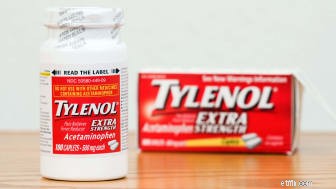
Johnson &Johnson (JNJ, $142.37), founded in 1886 and public since 1944, operates in several different segments of the health-care industry. In addition to pharmaceuticals, it makes over-the-counter consumer products such as Band-Aids, Neosporin and Listerine. It also manufactures medical devices used in surgery.
The Dow component is currently rushing to develop a vaccine for coronavirus – the pneumonia-like disease spreading rapidly in China. Although that won't be a money-gusher anytime soon, it won't affect those who count on JNJ's steady dividends. The health care giant last hiked its payout in April, by 6.3% to $1.01 a share, extending its streak of consecutive annual dividend growth to 58 years.
J&J's earnings growth should be more than sufficient to keep the streak alive. Wall Street's pros expect profits to increase at an average annual rate of 5.7%.

Asset managers such as T. Rowe Price (TROW, $127.27) have been losing market share to indexed funds of the type Vanguard offers. Assets under management have declined by $200 billion so far this year to $1 trillion and revenue is forecast to remain essentially unchanged in 2020.
Be that as it may, T. Rowe Price has improved its dividend every year for 34 years, and it boasts a lean 33.9% payout ratio that should keep the annual hikes coming. The company last raised its distribution in February, by 18.4% to 90 cents per share.

Kimberly-Clark's (KMB, $143.24) well-known brands include Huggies diapers, Scott paper towels and Kleenex tissues. Like other makers of consumer staples, Kimberly-Clark holds out the promise of delivering slow but steady growth along with a healthy dividend to drive total returns.
Kimberly-Clark has paid out a dividend for 84 consecutive years, and has raised the annual payout for nearly half a century. In January, KMB announced a 3.9% increase in the quarterly dividend, to $1.07 per share. The company notes that for its most recent full fiscal year, it generated $425 million in cost savings and returned $2.2 billion to shareholders through dividends and share repurchases.
Analysts polled by S&P Capital IQ expect KMB earnings to grow at an average annual rate of 6.3% over the next five years.

Like Coca-Cola, PepsiCo (PEP, $134.46) is working against a long-term slide in soda sales. It too has responded by expanding its offerings of non-carbonated beverages. One advantage Pepsi has that rival Coca-Cola doesn't is its foods business – the company owns Frito-Lay snacks such as Doritos, Tostitos and Rold Gold pretzels, and demand for salty snacks remains solid.
Last year, Pepsi struck deals to buy BFY Brands, the maker of PopCorners snacks, and South Africa-based Pioneer Foods, to widen its reach in the snacks industry. That should help prop up PEP's earnings, which analysts expect will grow at 4.9% annually on average over the next five years.
It also should help the company maintain its place among the world's top dividend stocks. Its streak reached 48 years in February after a 7.1% hike to $1.0225 per share.

Defense contractor General Dynamics (GD, $141.97) is a relatively new member of the Dividend Aristocrats, having been added to the elite list of dividend growers in 2017.
Generous military spending has helped fuel this dividend stock's steady stream of cash returned to shareholders. In August 2019, the U.S. General Services Administration and the Defense Department awarded GD a $7.6 billion cloud contract. More recently, in December, the Pentagon awarded General Dynamics a $300 million U.S. defense contract to modernize and maintain the Navy's ballistic-missile submarine fire control systems.
General Dynamics has upped its distribution for 28 consecutive years. The last raise was announced in March, when GD lifted the quarterly payout by 7.8% to $1.10 a share. With a payout ratio of 34%, General Dynamics should have ample room for more dividend growth.

Aflac (AFL, $34.87) is a supplemental insurance company – popularized by the loud Aflac duck – with roots going back to 1955 that covers numerous workplace offerings, such as accident, short-term disability and life insurance.
In February, Aflac lifted its dividend for a 38th consecutive year, this time by 3.7% to 28 cents per share.
'(Raising the dividend is) a recognition of the stability of our earnings and capital generation,' said CEO Daniel Amos in a press release. 'It also demonstrates our commitment to rewarding our shareholders.'
COVID has depressed analysts' enthusiasm for the company, however; they now expect Aflac to generate average earnings growth of just 1.6% a year for the next half-decade, according to S&P Global Market Intelligence. Fortunately, the payout is an extremely conservative 27% of profits, so it's more than safe for now.

Germany's Fresenius Medical Care (FMS, $42.49) provides dialysis services to some 340,000 patients worldwide through its network of nearly 4,000 dialysis clinics. The company also sells dialysis-related products and services to around 3.4 million patients worldwide. Much of the company's growth has come from acquisitions, which have recently included Sparsh Nephrocare, XENiOS, Cura Group, and NxStage Medical.
North America represents 70% of the company's revenues. However, last year, Fresenius Medical Care introduced a lower-priced dialysis machine in China that is specifically designed for emerging markets.
In May, the company said it expects no impact to its dividend from COVID-19, and it's proposing a dividend of 1.2 euros. That indicates a good chance the payout will be bumped higher in 2020.

Raytheon Technologies (RTX, $59.64), formerly known as United Technologies prior to their spring 2020 merger, has paid cash dividends on its common stock every year since 1936. Even better, it has raised its payout annually for 26 years.
The merged entity – minus Carrier Global and Otis Worldwide – declared its first dividend in April with a distribution of 47.5 cents a share.
Analysts say that although commercial aerospace will face significant near-medium term headwinds from COVID-19, they expect that it will nevertheless generate significant cash by 2022.
Most recently, Raytheon's missiles and defense business secured a $32.2 million contract from the Navy to work on Evolved Sea Sparrow Missiles (ESSM) Block 2.

VF Corp. (VFC, $60.74) is an apparel company with a large number of brands under its umbrella, including The North Face outdoor products, Timberland boots and Eastpak backpacks. It added to its brand portfolio with the acquisition of Icebreaker Holdings – another outdoor and sport designer – under undisclosed terms in April 2018.
Analysts expect average annual earnings growth of 7.8% for the next five years from this transforming company. In addition to picking up Icebreaker, the company also spun off Kontoor Brands (KTB), which includes Lee and Wrangler jeans, in 2019.
The company's last dividend increase came in October, when it raised the payout by 11.6% to 48 cents a share. Interestingly, Kontoor was forced to suspend its payout in May 2020.

Consumer products giant Unilever (UL, $54.21) sells food, beauty-care and personal-care products used by more than 2.5 billion consumers worldwide and generates revenues in more than 190 countries.
This is a dominant player across several product lines. Eighty-five percent of Unilever's 400-plus brands hold market-leading positions. Many of its brands are familiar to American consumers:Dove soap, Lipton tea, Hellmann's mayo, Breyer's and Ben &Jerry's ice creams, TRESemmé shampoo and Pond's and Noxzema skin softeners. Twelve of its brands exceed $1.1 billion in annual sales.
Unilever originally consisted of Dutch and U.K. subsidiaries, but the company consolidated its operations into its Dutch subsidiary last year. This operational streamlining is expected to reduce costs and make the business more agile.
So far in 2020, Unilever has not improved upon its 0.4104-euro payout.

Cincinnati Financial (CINF, $70.48) boasts one of the best income-growth streaks on this list of the world's top dividend stocks. On Jan. 31, the property and casualty insurer lifted its payout for a 60th straight year. CINF, whose offerings include life insurance, annuities, umbrella insurance and a wide range of business insurance products, improved its quarterly dividend by 5.7%, to 56 cents per share.
It's far too soon to worry about Cincinnati Financial extending its streak to 61 years, but earnings trends and free cash flow are taking a hit amid the economic downturn. The insurer had negative free cash flow of $3.2 billion for the quarter ended March 31. In the same quarter of 2019, the company had free cash flow of $436 million. Additionally, CINF is expected to post a net loss this year of $4.80 a share vs. a year-ago profit of $4.20.
That has forced analysts to rethink their outlooks. Cincinnati Financial is currently expected to deliver an annual average profit decrease of 8.7% over the next three to five years, according to S&P Capital IQ data, though that's subject to revision if the country's COVID-19 situation (and the economy) improves.

Emerson Electric (EMR, $59.77) makes a wide variety of industrial products, ranging from control valves to electrical fittings.
The prolonged downturn in oil prices weighed on Emerson for a couple years as energy companies continued to cut back on spending. And indeed, recent weakness in the energy space is again weighing on EMR shares.
Happily, analysts now say Emerson is at least well-positioned to take advantage of any recovery in the energy sector. And they're forecasting decent earnings growth of about 7.8% annually on average over the next three to five years.
Emerson has paid dividends since 1956 and has boosted its annual payout for 63 consecutive years, including its last increase – 2% to 50 cents per share – in November 2019. Over the past 12 months, EMR has returned $1.2 billion to shareholders through dividends, and roughly the same amount in stock buybacks.
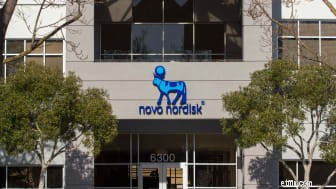
Danish firm Novo Nordisk (NVO, $65.44) is the world leader in medicines for diabetes and obesity-related disorders. The company has a 47% share of the insulin market and a 27% share of the total market for diabetes care (which includes insulin).
North American operations account for roughly half of sales. Other significant markets include Europe, China and the Middle East. Insulin products contribute 50% of revenues, other diabetes products and obesity products contribute 34% of sales, and biopharmaceutical medicines for bleeding and growth hormone-related disorders round out the remaining revenues.
Because diabetes is a chronic condition, Novo Nordisk's insulin sales create steady recurring cash flow. The company recently launched its new line of GLP-1 therapeutics for treating type-2 diabetes that is already approaching blockbuster drug status. GLP-1 is a naturally occurring hormone that induces insulin secretion. GLP-1 therapeutics have rapidly grown to become 17% of the worldwide diabetes market, and Novo Nordisk is the market leader with a 47% global market share in this new niche.
NVO pays dividends semiannually.
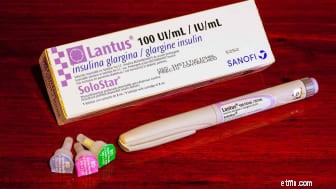
French drugmaker Sanofi (SNY, $50.28) is known for diabetes drugs such as Lantus, which recently came off-patent, and is working to become a bigger player in cancer, immunology and rare blood disorders. In 2018, the company acquired Bioverativ and Ablynx, which develop drugs for hemophilia.
Sanofi also advanced its drug Dupixent, for new treatment indications in dermatitis. Dupixent creates the platform for Sanofi's expansion in immunology. Developed in partnership with Regeneron (REGN), Dupixent is on track to generate $2 billion of annualized revenues, good for blockbuster status.
Under a new CEO recruited from rival Novartis, Sanofi is now focusing on sourcing more new drugs internally. It's also redirecting spending toward a slate of experimental oncology drugs. Roughly half its pipeline consists of internally derived molecules; Sanofi hopes to bring that number up to 70% over the next five to 10 years.
Sanofi's dividends have improved every year for more than a quarter-century, putting it among Europe's top dividend stocks. Its 2019 annual payout, of 3.15 euros per share, was approved in April 2020 and represents a 2.6% uptick.

Sysco (SYY, $52.31), a food services and restaurant supply company, has long generated sales growth by making acquisitions. And prior to COVID-19 shutting down food preparation establishments, stadium concessions and the like, Sysco was able to generate plenty of growth on its own, too.
This combination of organic and M&A-based growth has produced a steady ramp-up in revenues for years. Where that goes from here remains to be seen. Analysts expect average earnings growth of 5.5% annually over the next half-decade, down from more than 11% at the start of 2020 thanks to effects from COVID-19.
That should nonetheless allow Sysco to maintain its spot among the best dividend stocks for payout growth. SYY's streak currently sits at half a century and includes a 15% hike to 45 cents per share, announced in November 2019.

It's not easy being an auto parts manufacturer, but if any company can handle the tariff issues, it's Magna International (MGA, $45.85).
A big player in electric-vehicle development, Magna joined with BMW and Andretti Motorsport as a partner in their electric-vehicle racing team in 2018. The alliance allows Magna to learn more about how its mobility solutions business can help cities solve their mobility challenges.
MGA raised its dividend from 36.5 cents per share to 40 cents in early 2020 to extend its streak to 11 years. Magna paid dividends of $121 million during the three months ended March 31 and spent another $192 million on stock buybacks.

Coca-Cola (KO, $45.15) has long been known for quenching consumers' thirst, but it's equally effective at quenching investors' thirst for income. The company's dividend history stretches back to 1920, and the payout has swelled for 58 consecutive years. The last hike, announced in February 2020, was an admittedly modest one, however, at just 2.5% to 41 cents per share.
With the U.S. market for carbonated beverages on the decline for more than a decade, according to market research, Coca-Cola has responded by adding bottled water, fruit juices and teas to its product lineup to keep the cash flowing. In addition to the namesake Coca-Cola brand, KO also sports names such as Minute Maid, Powerade, Simply Orange and Vitaminwater.
The latest big-name deal made by Coca-Cola came in 2018, when it acquired Costa Limited, which owns the popular Costa Coffee brand that operates in more than 30 countries. For 2020, KO hopes to make a splash with a caffeinated sparkling water lineup, as well as Coca-Cola-branded energy drinks.

Fortis (FTS, $38.18) owns 10 utility operations in Canada, U.S. and the Caribbean, providing gas and electricity to more than 3.3 million customers. It is one of the top 15 utilities in North America. In the company's 31-year history, its asset base has grown from $300 million at its launch in 1985 to $50 billion today.
The company gets 92% of its earnings from regulated utilities, which means those profits are fairly stable and benefit from steady rate increases. It's easy to see why Fortis is among Canada's top dividend stocks, at 45 consecutive years of dividend increases.
Over the past decade, Fortis has kept its dividend payout ratio between 61% and 73%, ensuring it's not stretching to make its payments. Its last hike was a 6.1% bump in its December 2019 dividend, to 47.75 Canadian cents per share.
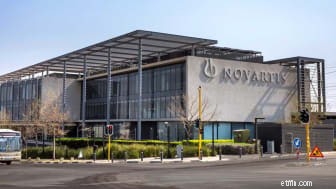
Swiss health-care company Novartis (NVS, $87.01) is known for its blockbuster drugs Cosentyx (arthritis) and Entresto (heart failure). Under a new CEO, the company has been pivoting toward more cutting-edge gene therapies such as Zolgensma, which treats spinal muscular atrophy. It's one of the first gene therapies to go on sale in the U.S. and carries a hefty $2.1 million price tag. Novartis acquired the drug through the $8.7 billion purchase of the drug's developer, AveXis.
Acquisitions in gene therapies and radiopharmaceuticals (drugs that carry radioactive particles to cancer tumors) build on earlier investments in Novartis' new CAR-T gene therapy, in which blood cells extracted from a patient are modified to attack cancer and then re-infused into the patient.
Novartis' annual dividend, which has grown for more than two decades, is inching along, including a 3.5% hike for 2019. (Like many European payers, Novartis' dividends for a particular year are actually declared in the following year; 2019's dividend was declared in 2020, for instance.)

Archer Daniels Midland (ADM, $39.38) processes ingredients for food and feed, including corn sweeteners, starches and emulsifiers such as lecithin. It also has a commodities trading business. It's a truly global agricultural powerhouse, too, boasting customers in 170 countries that are served by 450 crop procurement locations, as well as more than 330 ingredient plants.
It's a slow-growth business, however. Analysts surveyed by S&P Capital IQ expect ADM's earnings to rise at an average annual rate of just 6% for the next five years.
Archer Daniels Midland has paid out dividends on an uninterrupted basis for 88 years. On Jan. 30, ADM raised its quarterly dividend by a little less than 3% to 35 cents per share, marking its 46th consecutive year of dividend hikes.

Real estate investment trusts (REITs) such as Essex Property Trust (ESS, $225.33) are required to pay out at least 90% of their taxable earnings as dividends in exchange for certain tax benefits. Thus, REITs are well known as some of the top dividend stocks you can buy.
ESS was added to the Dividend Aristocrats this year. The REIT, which invests in apartments, primarily on the West Coast, hit the public markets in 1994 and has been hiking its payout ever since.
The most recent increase came in February 2020, when ESS lifted the quarterly dividend 6.5% to $2.0775 per share.
Although the dividend is what makes ESS stand out, it typically pleases investors with price appreciation, too. However, losses in 2020 have been far deeper than the S&P 500 as investors worry about the prospects for unpaid rents later this year.

Industrieel conglomeraat 3M (MMM, $152.85), which makes everything from adhesives to electronic touch displays, hasn't kept up its end of the bargain when it comes to being a defensive stock. Shares have underperformed the S&P 500 by a wide margin this year.
But 3M's troubles stretch farther back than 2020. MMM had been struggling for a while in part because of slower growth in China. And that was before the spread of coronavirus led to a Chinese lockdown, followed by damage to the rest of the global economy.
True, 3M continues to ramp up production of N95 respirators, but those aren't the kind of high-margin products that move the earnings needle.
However, whatever the shorter-term holds for 3M's share price, investors can bank on the conglomerate maintaining its status as one of the world's top dividend stocks over the long haul. While inclusion in the S&P 500 Dividend Aristocrats requires a minimum of 25 years of uninterrupted annual dividend growth, MMM has much more – its dividend has improved annually for 62 consecutive years, and the payout dates back more than a century. 3M's last hike was a 2% increase announced in February.

A steady stream of acquisitions helped wholesale drug and medical device distributor Cardinal Health (CAH, $49.36) become the giant that it is today.
More recently, Cardinal Health had to recall 9 million substandard surgical gowns, which sent hospitals scrambling. CAH said its Chinese supplier outsourced some of the surgical gown production work to a 'non-registered, non-qualified facility' where Cardinal couldn't assure its sterility.
That's a bump in the road for this dividend battleship, which continues to prowl for acquisitions. CAH's last big deal was completed in summer 2017, when it acquired Medtronic's Patient Care, Deep Vein Thrombosis and Nutritional Insufficiency business for $6.1 billion.
On the dividend front, Cardinal Health has upped the ante on its annual payout for 35 years and counting. The Dividend Aristocrat last raised its dividend in May, when it announced a small 1% increase to 48.59 cents per share.
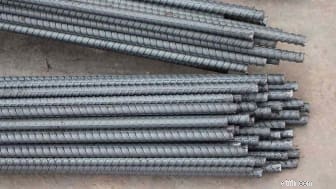
Shareholders in Nucor (NUE, $40.45), the largest U.S. steelmaker, were hoping 2020 was the year in which business got back to normal after a few years of turbulence due slower global growth and tariffs.
So much for that. Shares are down by more than a quarter for the year-to-date as the global economy struggles against the effects of COVID-19.
Whatever may come, investors have plenty of proof that Nucor is dedicated to growing its dividend. Nucor has increased its payout for 47 consecutive years, or every year since it first began paying dividends in 1973. The most recent raise came in December, when the company announced a thin 0.6% improvement in its dividend, to 40.25 cents per share.
Nucor has returned approximately $6 billion in cash to its stockholders in the form of dividends and share repurchases over the past decade, the company says.
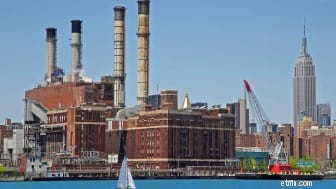
Consolidated Edison (ED, $72.48) is one of the nation's largest utility stocks by market value. Founded in 1823, it provides electric, gas and steam service for the 10 million customers in New York City and Westchester County.
Like most utilities, Consolidated Edison enjoys a fairly stable stream of revenues and income thanks to a dearth of direct competition. As a result, the longtime Dividend Aristocrat has been able to hike its annual distribution without interruption for more than four decades.
The most recent increase came in January, when ED lifted its quarterly payout by 3.4% to 76.5 cents per share.

Amcor (AMCR, $10.51) is a pretty boring company. It designs, manufactures and sells various packaging products for every industry you can think of, including food, beverage, pharmaceutical, medical, home and personal care.
Sometimes boring is beautiful, though, and that's the case with Amcor. It was named to the list of payout-hiking dividend stocks at the start of 2020 after its June 2019 acquisition of Bemis. Bemis, which fell out of the S&P 500 index and thus the Aristocrats in 2014, rejoined by merit of its merger with Amcor.
The analyst community expects the company to deliver average annual earnings growth of 8%. Also, with a yield of more than 4%, AMCR is one of the more generous Dividend Aristocrats.

Belgian holding company Groupe Bruxelles Lambert (GBLBY, $7.50) is one of Europe's largest investment firms, with sizable stakes in industry-leading companies such as Adidas (ADDYY), Total SA (TOT) and Pernod Ricard (PDRDY). The company also owns Sienna Group, which invests across many of the world's leading fund managers.
Groupe Bruxelles Lambert's net asset value sits around $18 billion currently.
The company has improved its payout for 16 consecutive years, while delivering 11.5% annualized total shareholder return from 2012-19, beating an 8.4% return for the Stoxx Europe 50 during the same time period. The lightly traded GBLBY ADR shares have struggled in 2020, however, with a 27% decline that has boosted its yield well above 4%.

Royal Bank of Canada (RY, $68.48) is one of Canada's largest banks, and among the largest in the world by market capitalization. It boasts more than 16 million customers and operates in 36 countries including the U.S. and (naturally) Canada.
RBC was named Retail Banker International's North America Retail Bank of the Year in 2019. And J.D. Power has named it the highest or second-highest for customer satisfaction in each of the past four years.
Over the past 10 years, Royal Bank of Canada paid out more than C$35 billion in dividends to its shareholders, growing its payment by an average of 12% a year. The company announced its 10th consecutive dividend increase in February when it raised its payout 5% to $1.08 per share.
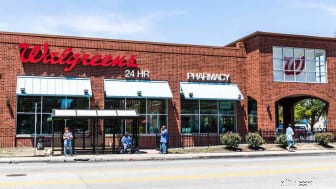
Tracing its roots back to a single drugstore founded in 1901, today's Walgreens Boots Alliance (WBA, $40.12) was created by a merger with Alliance Boots – a Switzerland-based health and beauty multinational – in 2014.
Walgreens Boots Alliance and its predecessor company, Walgreen Co., have paid a dividend in 350 straight quarters (more than 86 years) and have raised the payout for 44 consecutive years, the company says.
Although WBA has boosted its dividend every year for more than four decades – most recently, in July 2019, it declared a hike of 4% – investors are waiting to see if it will keep its streak alive for a 45th year.

Algonquin Power &Utilities (AQN, $12.96) is a Canadian utility company that operates under two subsidiaries. Liberty Utilities provides water, electricity and gas utility services to more than 750,000 customers in 12 states, including Illinois, Texas, California and Massachusetts. Liberty Power, meanwhile, owns an interest in more than 35 clean-energy facilities in the U.S. and Canada.
AQN is in the midst of a five-year, $7.5 billion capital plan that will see it invest between $1.5 billion and $1.7 billion in 2019 on projects across North America, including a three-farm, 600-megawatt wind generation project in the U.S. Midwest.
Algonquin last raised its quarterly dividend by 10% to 15.51 cents per share for its July payment.

As mentioned earlier, AbbVie (ABBV, $96.83) was spun off from Abbott Laboratories in 2013, and like its parent, it carries a longstanding dividend-growth streak that allowed it to remain among the Dividend Aristocrats.
Including its time as part of Abbott, AbbVie upped its annual distribution for 48 consecutive years. The last hike was a 10.3% bump to $1.18 per share for the dividend paid out in February 2020.
The firm closed its $63 billion acquisition of Botox-maker Allergan in May. The deal goes a long way toward bolstering AbbVie's current lineup of blockbuster drugs such as Humira – a rheumatoid arthritis drug that has been approved for numerous other ailments. AbbVie also makes cancer drug Imbruvica, as well as testosterone replacement therapy AndroGel.
That added earnings power should keep AbbVie among the world's top dividend stocks.

Realty Income (O, $56.99) is another REIT with a beaten-down share price and a long history of delivering steady income. But there's another aspect to this stock that might suit certain income investors:Realty Income is a rare breed of monthly dividend stocks.
The company owns more than 6,500 commercial real estate properties that are leased out to more than 630 tenants – including Walgreens, 7-Eleven, FedEx (FDX) and Dollar General (DG) – operating in 51 industries. These are mostly retail-focused businesses with strong financial health.
Realty Income generates very predictable cash flow thanks to the long-term nature of its leases, which should keep the monthly dividend payments coming. Indeed, O shares have delivered 599 consecutive monthly dividends to date, including 91 consecutive quarterly increases.
The current 23.35-cent distribution is about 3% larger than it was a year ago.

The name Franklin Resources (BEN, $21.10) might not be well-known among investors; however, along with its subsidiaries, it's called the more familiar Franklin Templeton investments. The global investment firm is one of the world's largest by assets under management, and is known for its bond funds, among other offerings.
Mutual fund providers have come under pressure because customers are eschewing traditional stock pickers in favor of indexed investments. However, Franklin has fought back in recent years by launching its first suite of passive exchange-traded funds.
The asset manager has raised its dividend annually since 1981, including a 4% hike to 27 cents per share quarterly announced in December 2019.

Federal Realty Investment Trust (FRT, $79.95) is another REIT whose share-price has collapsed as a result of the coronavirus lockdown. Indeed, the stock fell by a third during the first half of 2020.
When it comes to dividends, however, few stocks have been steadier than FRT.
The trust, which owns retail and mixed-use real estate across 12 states, as well as the District of Columbia, has hiked its payout every year for more than half a century, making it one of the top dividend-paying stocks in real estate.
FRT has registered roughly 59% dividend growth over the past decade. That includes a modest 2.9% improvement to the cash distribution announced in August 2019.
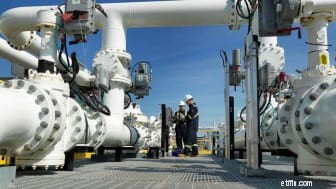
TC Energy (TRP, $41.77), formerly known as TransCanada, is a leading North American energy infrastructure company that began life in 1951 as TransCanada Pipelines Limited. TransCanada announced the name change early in 2019 with the official transition on May 3, to reflect that it has operations across North America, and not just in Canada.
The Calgary-based company owns one of the largest natural gas pipeline networks in North America (57,500 miles of pipeline), capable of moving 25% of the continent's demand for natural gas. In addition, its Keystone liquids pipeline system transports approximately 20% of Western Canada's crude oil exports.
Like many energy stocks, TRP has struggled in 2020, off nearly 30% year-to-date. Most recently, the company's stock was hobbled by a Supreme Court ruling against its Keystone XL oil-sands pipeline.
TC Energy is on track to lift its 2020 full-year dividend to C$3.24 from C$3.00 a year ago. The company intends to expand the dividend by 8% to 10% annually through at least 2021.

BCE (BCE, $40.58) is Canada's largest communications company with annual revenue of $22.7 billion. It generates approximately 54% of its sales from wireline broadband and TV, 35% from wireless, and the remaining 11% from the company's media operations.
The company's fiber-optic network is 240,000 kilometers in length – the largest in Canada – delivering internet, phone and TV to more than 9.2 million locations across seven provinces.
BCE last raised its annual dividend in February, when it boosted the payout by 5% to 83.25 Canadian cents per share.
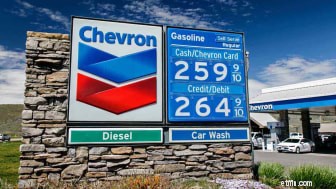
Chevron (CVX, $85.23) is an integrated oil giant that also has operations in natural gas and geothermal energy. And like its competitors, Chevron hurt when oil prices started to tumble in 2014. The energy major was forced to slash spending as a result, but – reassuringly – it never slashed its dividend.
Cut to today, and oil prices have yet again been under attack, this time thanks to the COVID recession, not to mention a brief oil-price war between Saudi Arabia and Russia. Things have stabilized a bit, however. Kiplinger forecasts that prices will range from $35 to $40 a barrel in the months ahead. That's not great, but it's a far better environment than what energy companies were dealing with earlier this year.
With more than three decades of uninterrupted dividend growth under its belt, Chevron's track record instills confidence that the payouts will continue. The most recent hike came in January, when CVX lifted its quarterly dividend by more than 8% to $1.29 per share.
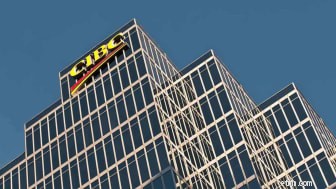
Canadian Imperial Bank of Commerce (CM, $67.36) is the smallest of Canada's five major banks. It greatly expanded its U.S. business in 2017, however, by purchasing Chicago-based PrivateBancorp for $5 billion in cash and shares.
Now, the bank serves 10 million clients in Canada, the U.S. and across the globe via various banking arms, as well as wealth management and capital markets.
CIBC, like a few other Canadian dividend stocks, raised its payout twice in 2019 – from $1.36 to $1.40, and then again to $1.44. The most recent raise declared in May, when the bank increased the dividend by 1.4% to $1.46 a share.

Bank of Nova Scotia (BNS, $40.88) went on a buying binge last year, spending almost C$7 billion on acquisitions both in Canada and Latin America. The deals haven't helped the stock much in 2020, however, as shares have tumbled on weak oil prices and cold Canadian economy.
The bank declared its initial dividend in 1833 and payments have been made continuously since. Even better for long-term investors, BNS has increased the dividend in 43 of the past 45 years. Its current dividend growth streak is nine years.
A reminder:Qualification for aristocracy in Canada is a little different and less stringent than the U.S. version. Most importantly, a stock only needs to increase its annual payout for five consecutive years to become a member of the Canadian Dividend Aristocrats, and can even maintain the same dividend for two consecutive years within that time.

People's United Financial (PBCT, $11.13) is a rare banking play in this collection of dividend stocks. The regional financial services firm – which operates more than 400 branches in Connecticut, New York, Massachusetts, Vermont, New Hampshire and Maine – has more than $60 billion in total assets. The venerable New England institution traces its roots back to 1842.
PBCT was added to the Dividend Aristocrats in January 2019. Cut to April, and the firm hiked its dividend for a 27th consecutive year, by 1.4% to 184 cents per share.
Future increases could be modest, too. While the company's payout ratio of 56% is plenty safe, analysts expect modest annual earnings growth of just 2% on average over the next half-decade. Moreover, there currently is pressure on banks to not overextend themselves financially via dividends and share repurchases.

Telecommunications stocks are synonymous with dividends. Customers pay for service every month, which ensures a steady stream of cash for these dividend stocks.
AT&T (T, $30.13) – the largest U.S. telecom company – is a prime example.
AT&T has raised its dividend on an annual basis for 36 consecutive years, and typically boasts one of the highest dividend yields in the S&P 500. That's in large part because of the cash flows generated by the telecom business, which enjoys what some call an effective duopoly with rival Verizon (VZ). Together, the pair command almost 70% of the U.S. wireless subscriptions market, according to data from Statista.
But while AT&T might be among the world's top dividend stocks, its payout growth isn't exactly breathtaking. AT&T's most recent increase was a 2% uptick announced in December, to 52 cents per share. That continues a years-long streak of penny-per-share hikes.

British American Tobacco (BTI, $37.23) is the No. 2 cigarette maker in the world by sales, behind Philip Morris International (PM). The company operates in 180 countries and has a market-leading position in more than 50 countries. Cigarette sales are largely driven by five key brands:Dunhill, Kent, Lucky Strike, Pall Mall and Rothmans. BTI also added popular U.S. brands such as Newport, Camel and Natural American Spirit through the 2017 acquisition of Reynolds American.
Cigarette sales are declining, of course, and tobacco companies are relying on new product categories such as e-cigarettes and oral tobacco to generate growth. British American Tobacco owns two market-leading e-cigarette brands (Vype and Vuse) and several popular oral tobacco brands (Epok, Lyft and Velo). The company expects new product categories to contribute more than $6 billion of annual sales by 2024.
This European Dividend Aristocrat switched from semiannual to quarterly dividends in 2018. In May, BTI raised its quarterly payout by 3.6%.

Prudential (PUK, $60.54) spun off its U.K. and European operations last year to focus on expanding its Asia, U.S. and Africa business. Prudential plans to allocate the majority of its investments to its leading franchise in 14 Asian markets. Cash flow for growth will be generated by harvesting profits from its Jackson U.S. retirement products business.
In recent years, Asia and the U.S. have been Prudential's primary growth catalysts, generating 15% annual earnings and free cash flow growth over the past decade.
Prudential's Eastspring Investments Asian asset management business expanded its footprint in Thailand in September 2019 by acquiring a majority stake in the country's eighth largest mutual fund manager. The combined businesses will create Thailand's fourth largest asset manager and sixth largest bank, with 10 million retail customers.
Prudential declared its most recent dividend in March, which came to 25.97 cents per share.

Canadian Natural Resources (CNQ, $16.88) is one of the world's top independent energy producers, with natural gas, heavy crude oil and oil sands operations in North America and offshore operations in Africa and the U.K. It produces the oil equivalent of more than 1 billion barrels daily.
Canadian Natural Resources completed its acquisition of Devon Energy's (DVN) Canadian assets for C$3.8 billion in mid-2019. The deal made CNQ the eighth-largest oil producer in the world (excluding government-owned enterprises).
CNQ returned more than $2.6 billion to shareholders in 2019. Dividend payments came to approximately $1.7 billion, while it spent about $900 million on stock buybacks.
The company's April payout of 42.50 Canadian cents a share represented a year-over-year increase of 13.3%.

One of the big headwinds holding back Enbridge (ENB, $29.60) stock was a complex business structure in place to take advantage of tax loopholes available to master limited partnerships.
However, when the Federal Energy Regulatory Commission decided to put an end to the loopholes, which allowed MLPs to double their recovery of taxes, Enbridge decided to buy back all of its pipeline subsidiaries at the cost of C$11.4 billion.
Enbridge is one of Canada's top dividend stocks; it has paid a cash distribution for more than 65 years and has raised it annually for a quarter of a century. Most recently, in December 2019, the company announced a 9.8% increase in the quarterly dividend to 81 Canadian cents a share.
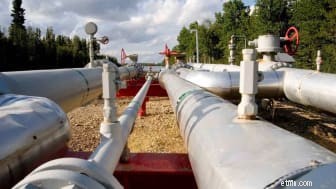
Pembina Pipeline (PBA, $23.52) is a leading North American energy infrastructure company based in Calgary, Alberta. The company's pipelines will soon have the capacity to transport 3.2 million barrels of oil equivalent per day.
Its Pipeline business accounts for 58% of overall profits. The Facilities division, which gathers and processes natural gas, accounts for 27%, and its Marketing &New Ventures division makes up the rest.
At the end of 2019, Pembina acquired Kinder Morgan Canada, as well as the U.S. portion of the Cochin Pipeline system, for C$4.4 billion from Kinder Morgan (KMI). The move came a year after Kinder sold the Trans Mountain Pipeline to the Canadian government for a similar amount.
Pembina, which distributes dividends monthly, paid out C$1.3 billion in dividends in 2019. It raised its regular payout by 5% at the start of 2020.

Spain's principal natural gas carrier, Enagas (ENGGY, $11.95), delivers natural gas to eight European countries via a 10,000-kilometer pipeline network. And it's benefiting from the highest energy demand in that country in a decade.
Better still? 'No impacts have been evidenced by the situation of Covid-19 to be recorded in the first-quarter financial statements,' the company said in an April release. The company's Q1 profits jumped by nearly 15% year-over-year.
Enagas is diversifying its business outside the EU by acquiring a stake in Tallgrass Energy LP (TGE), a natural gas distributor that operates three interstate pipelines across the U.S. In addition, the company has a major stake in the Trans Adriatic Pipeline, which will carry natural gas supplies to Europe from the Caspian Sea.
The Dividend Aristocrat grew its final fiscal-year payout by 2.4% this year to reach 17 consecutive years of income expansion.